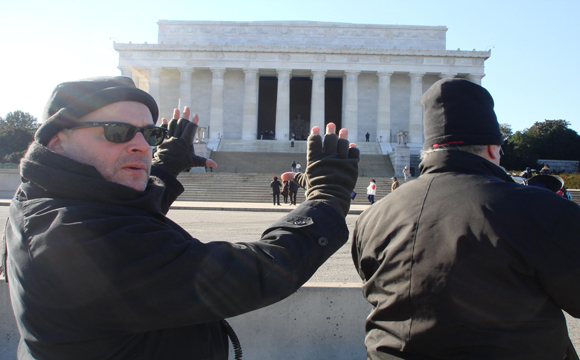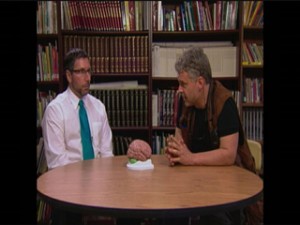What career path can lead to filmmaker?

As an avenue to inform the public, particularly students, of career paths for successful employment, The Holmes Education Post continues its segment of interviewing professionals in different fields. Our distinguished interviewee is Harvey Hubbell V, an Emmy Award-winning director who is releasing the film Dislecksia: The Movie this month that seeks to counter popular misconceptions about dyslexia. An excerpt of the interview with Hubbell follows:
What career path led to your profession of filmmaker (director)?
It’s been said that filmmakers are stamped at birth and I agree. Being a filmmaker is just how I am wired. I think in pictures and sound, and storytelling is an integral part of the human condition. Bringing these elements together came naturally for me from an early age. As far as being a director, my ability to ideate, lead teams, solve problems, and think creatively, multi-dimensionally and with vision, often under unthinkable time constraints, made it a natural and rewarding fit. I love what I do.
What educational background and/or professional training are essential for this profession?
By the time you are old enough to have a career, most of the keys to success in life can’t be taught to you. Anyone can learn teachable skills but what sets people apart and what makes or breaks people in this world and in this industry are things like character, passion, tenacity, vision and a hunger to seek meaning and create.
What educational challenges (reading, mathematics, etc.) did you face growing up as a dyslexic?
All of them! I struggled with reading and was considered ‘bad news’ for carrying a calculator in high school. Learning to read outside of the school system was life altering for me, and a saving grace. I was blessed to have the support of parents who recognized my intelligence. Whether you are dyslexic or not, I believe very passionately that children need at least one strong supporter in their lives to help them chart their course. Whether it’s a relative, teacher, mentor or family friend – it doesn’t matter but that one person can make all the difference.
What influenced you to pursue a career in your profession?
As a young child, I made vignettes and ‘films’ in my head, fancifully interweaving sound, picture and story. Thinking back on them, they were frequently quite elaborate and complex, often including scene transitions and music scores. The medium of film is a natural and intuitive form of expression for me and, a match for the creative rhythms of my inner mind. I treasure and fully appreciate the rich and creative visualization process that I have had since childhood. Only now, I get to birth my vignettes into full-fledged film projects and work with brilliant people. What could be better…?
What professional, civic or community organizations do you belong?
I recently started The Hubbell Difference Foundation in order to have a larger platform for leveraging the power of film to drive social change. We have many projects in the works, including the current rollout of Dislecksia: The Movie, and many more in the pipeline that I am really excited about. The foundation helps me derive deeper meaning and purpose from my work as a filmmaker, enabling me to positively impact more lives through the emotive medium of film. I am really excited to have started the foundation at this point in my life, and it brings me great joy.
What advice do you give to students who desire to become a film director?
Start young and be willing to move mountains to get experience working on film sets. Draft a list of films that you want to make and never stop adding to it. Surround yourself with talented, good-hearted, hard-working people; learn every day and most importantly, make projects that you believe in.
What advice do you give to educational institutions (schools, colleges, universities) about students as a dyslexic?
Use teaching methods that are inclusive to all learning styles and never disenfranchise or give up on a student. Never. The costs to our society, both locally and globally, are just too great.
Dr. Ronald Holmes is the author of four books, “Education Questions to be Answered,” “Current Issues and Answers in Education,” “How to Eradicate Hazing and “Professional Career Paths.” He is publisher of “The Holmes Education Post,” an education focused Internet newspaper. Holmes is a former teacher, school administrator and district superintendent. He can be reached at [email protected].



